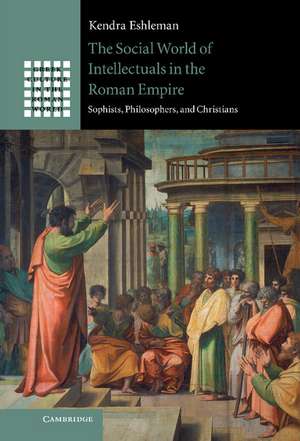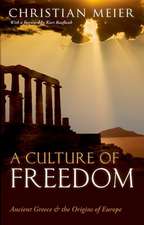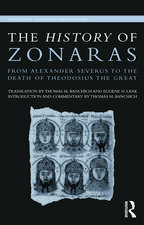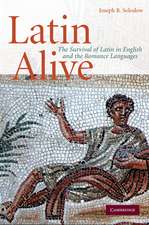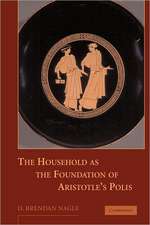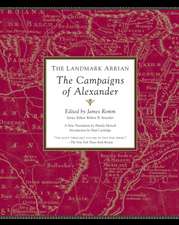The Social World of Intellectuals in the Roman Empire: Sophists, Philosophers, and Christians: Greek Culture in the Roman World
Autor Kendra Eshlemanen Limba Engleză Hardback – 7 noi 2012
| Toate formatele și edițiile | Preț | Express |
|---|---|---|
| Paperback (1) | 285.93 lei 43-57 zile | |
| Cambridge University Press – 25 noi 2020 | 285.93 lei 43-57 zile | |
| Hardback (1) | 689.49 lei 43-57 zile | |
| Cambridge University Press – 7 noi 2012 | 689.49 lei 43-57 zile |
Din seria Greek Culture in the Roman World
-
 Preț: 235.13 lei
Preț: 235.13 lei -
 Preț: 201.40 lei
Preț: 201.40 lei -
 Preț: 312.43 lei
Preț: 312.43 lei -
 Preț: 315.25 lei
Preț: 315.25 lei -
 Preț: 215.75 lei
Preț: 215.75 lei - 8%
 Preț: 530.69 lei
Preț: 530.69 lei -
 Preț: 286.30 lei
Preț: 286.30 lei -
 Preț: 206.57 lei
Preț: 206.57 lei - 14%
 Preț: 733.20 lei
Preț: 733.20 lei -
 Preț: 364.80 lei
Preț: 364.80 lei - 14%
 Preț: 755.69 lei
Preț: 755.69 lei -
 Preț: 287.28 lei
Preț: 287.28 lei -
 Preț: 401.19 lei
Preț: 401.19 lei -
 Preț: 320.90 lei
Preț: 320.90 lei -
 Preț: 324.03 lei
Preț: 324.03 lei - 11%
 Preț: 695.06 lei
Preț: 695.06 lei -
 Preț: 324.40 lei
Preț: 324.40 lei - 14%
 Preț: 777.00 lei
Preț: 777.00 lei -
 Preț: 258.44 lei
Preț: 258.44 lei -
 Preț: 325.01 lei
Preț: 325.01 lei -
 Preț: 340.34 lei
Preț: 340.34 lei - 11%
 Preț: 698.50 lei
Preț: 698.50 lei -
 Preț: 283.63 lei
Preț: 283.63 lei - 14%
 Preț: 885.74 lei
Preț: 885.74 lei -
 Preț: 323.05 lei
Preț: 323.05 lei -
 Preț: 290.98 lei
Preț: 290.98 lei - 14%
 Preț: 768.27 lei
Preț: 768.27 lei -
 Preț: 448.80 lei
Preț: 448.80 lei -
 Preț: 287.48 lei
Preț: 287.48 lei - 14%
 Preț: 766.25 lei
Preț: 766.25 lei -
 Preț: 284.78 lei
Preț: 284.78 lei - 11%
 Preț: 696.26 lei
Preț: 696.26 lei - 11%
 Preț: 695.59 lei
Preț: 695.59 lei - 11%
 Preț: 694.04 lei
Preț: 694.04 lei - 14%
 Preț: 758.22 lei
Preț: 758.22 lei - 11%
 Preț: 704.99 lei
Preț: 704.99 lei
Preț: 689.49 lei
Preț vechi: 801.74 lei
-14% Nou
Puncte Express: 1034
Preț estimativ în valută:
131.98€ • 143.40$ • 110.93£
131.98€ • 143.40$ • 110.93£
Carte tipărită la comandă
Livrare economică 21 aprilie-05 mai
Preluare comenzi: 021 569.72.76
Specificații
ISBN-13: 9781107026384
ISBN-10: 1107026385
Pagini: 304
Ilustrații: 2 b/w illus.
Dimensiuni: 152 x 229 x 21 mm
Greutate: 0.59 kg
Ediția:New.
Editura: Cambridge University Press
Colecția Cambridge University Press
Seria Greek Culture in the Roman World
Locul publicării:New York, United States
ISBN-10: 1107026385
Pagini: 304
Ilustrații: 2 b/w illus.
Dimensiuni: 152 x 229 x 21 mm
Greutate: 0.59 kg
Ediția:New.
Editura: Cambridge University Press
Colecția Cambridge University Press
Seria Greek Culture in the Roman World
Locul publicării:New York, United States
Cuprins
Introduction; 1. Inclusion and identity; 2. Contesting competence: the ideal of self-determination; 3. Expertise and authority in the early church; 4. Defining the circle of sophists: Philostratus and the construction of the Second Sophistic; 5. Becoming orthodox: heresiology as self-fashioning; 6. Successions and self-definition; 7. 'From such mothers and fathers': succession narratives in early Christian discourse.
Recenzii
'This is an engaging book, written in a clear and often perky style, with some but not too much sociological jargon. Eshleman has read very widely, quotes her ancient texts in the original and translates them, and gives the reader much food for thought.' Sehepunkte
'This is much more than a 'first' book, however highly one may rank it; it is a book which masterly reveals the 'common set of culturally available strategies of self-definition' in use by both pagan pepaideumenoi and Christian intellectuals of the Imperial age.' Dimitris Karambelas, Bryn Mawr Classical Review
'This is much more than a 'first' book, however highly one may rank it; it is a book which masterly reveals the 'common set of culturally available strategies of self-definition' in use by both pagan pepaideumenoi and Christian intellectuals of the Imperial age.' Dimitris Karambelas, Bryn Mawr Classical Review
Notă biografică
Descriere
Examines the role of social networks in defining the identity of sophists, philosophers and Christians in the early Roman Empire.
